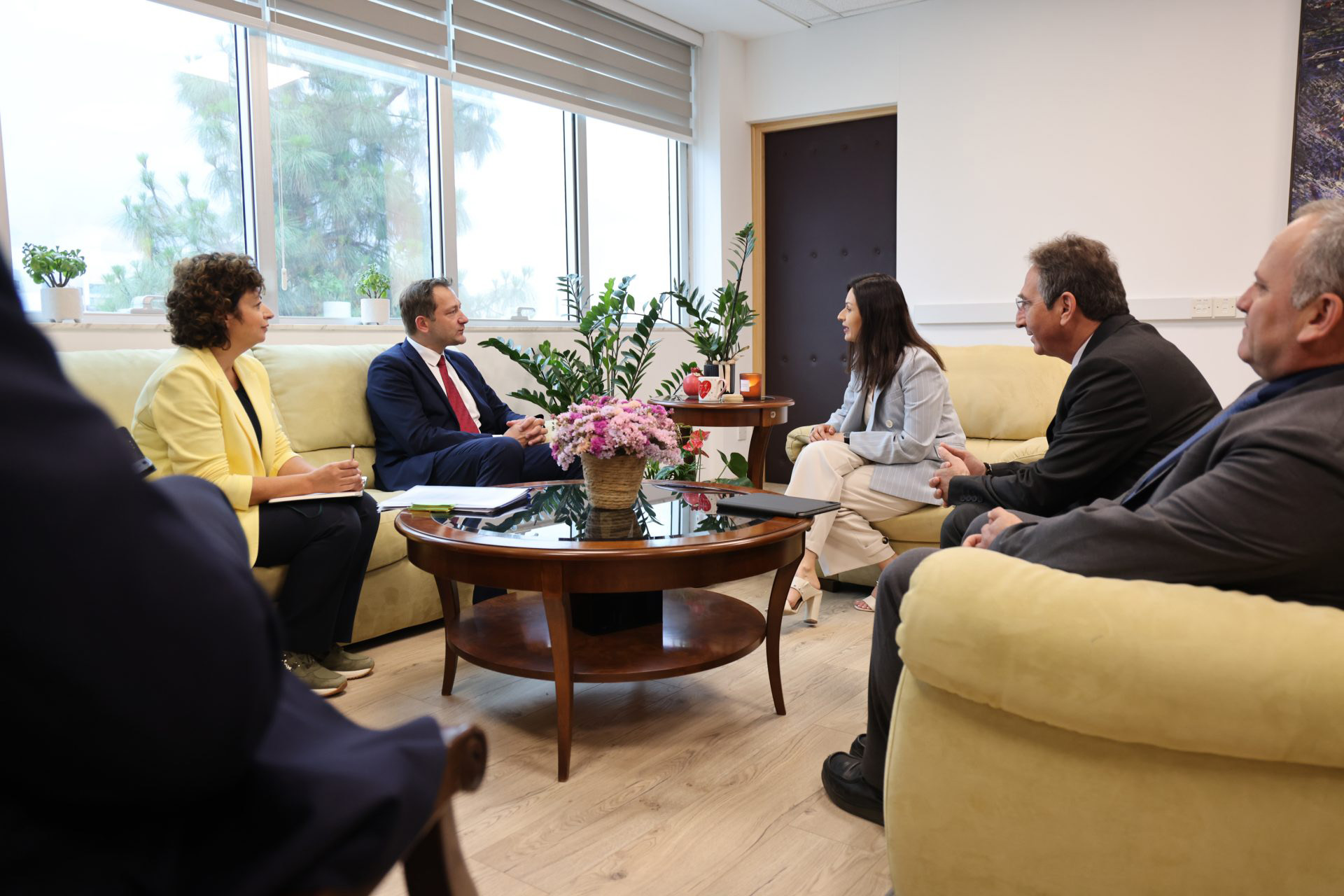EU commissioner highlights Cyprus’ water shortage
European Commissioner for agriculture Christophe Hansen on Friday highlighted the water shortages facing Cyprus, saying that when his aeroplane was landing on the island, children on the plane “wondered if they were landing in the desert”.
“The water scarcity that you face every day here in Cyprus is a huge problem for other Mediterranean countries as well, but the phenomenon is also moving north,” he said during a meeting with Cyprus’ Agriculture Minister Maria Panayiotou.
“I am responsible for agriculture with a reserve of €450 million per year to deal with these challenges – floods, forest fires, and droughts. This is simply not enough, and I was pleased to be able to help Cyprus with a support package of €3.5m, but this is not enough,” he said.
As such, he said “other alternatives” must be sought, and said he is “working very closely” with commissioner for the environment Jessica Roosval to devise a “water resilience strategy”, because “the problem is getting bigger and the extreme weather events are becoming more frequent and more intense”.
He added that “more investment is needed” in new technology, in water infrastructure, and in ways to “use limited water resources in an even more efficient way”.
Later during the meeting, he said that Cyprus has lost 59 per cent of its livestock in recent years.
“This is a threatening trend observed throughout Europe, but it is even more pronounced in Cyprus. We must take initiatives to ensure a sustainable and prosperous future for the livestock sector,” he said.
He also spoke on the matter of “generational renewal” in the agriculture sector, that being convincing young people to take up careers in the sector.
This, he said, is a “common challenge” for countries across Europe.
“We do not have enough young farmers who are willing to take on this important task, to ensure our food security,” he said, adding that policies aimed at convincing more young people to enter the sector will be “one of the key priorities of the reform of the common agricultural policy”.
Looking at potential solutions, he pointed to Austria as an example of a country which may be headed in the right direction.
In Austria, he said, around 24 per cent of farmers are aged below 40 years old, with this figure double the European Union average of 12 per cent.
He said that it is the use of education and technology which has seen a comparatively high number of young people in Austria enter the sector.
“Education is really a strong point. Austria has over 73 specialised schools for agricultural economics, rural environment, and so on, and offers special support for young farmers to get started. We should also draw inspiration from that,” he said.
He added that “we need to stop seeing farmers as part of the problem, but as part of the solution.
“In Austria, farmers are the second most respected profession, after doctors, because they produce everyday food. This is something we need to promote, to put farmers at the centre,” he said.
Panayiotou, meanwhile, said young people “must have access to land and financial incentives”, saying that without young people, “there is no future for our agriculture”.
On the matter of water security, she called for “the creation of a new tool to address crises caused in agriculture by extreme weather events, such as droughts and floods”.
“Our proposal concerns the creation of a simplified mechanism for direct assistance to affected farmers so that they can continue to produce,” she said, adding that the Cypriot government believes that this should be financed by the EU’s budget.
As such, she said, “our intention is to submit this proposal to one of the upcoming councils of ministers in Brussels”.






Click here to change your cookie preferences